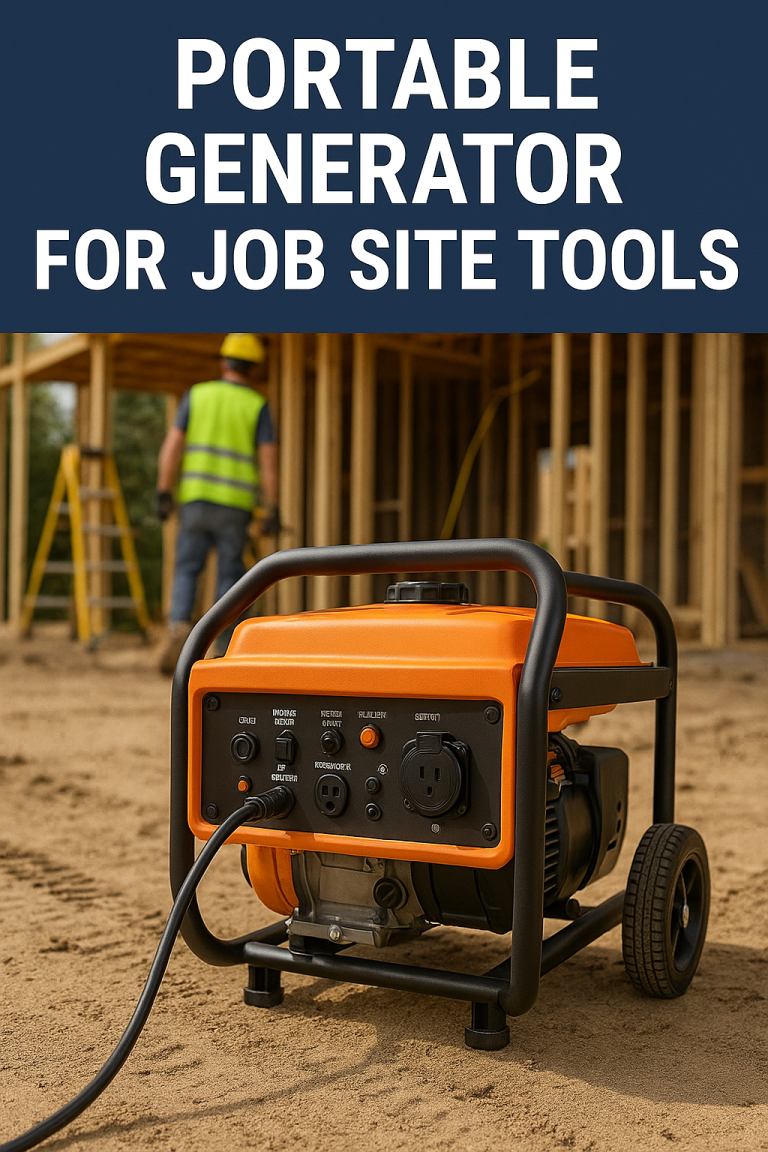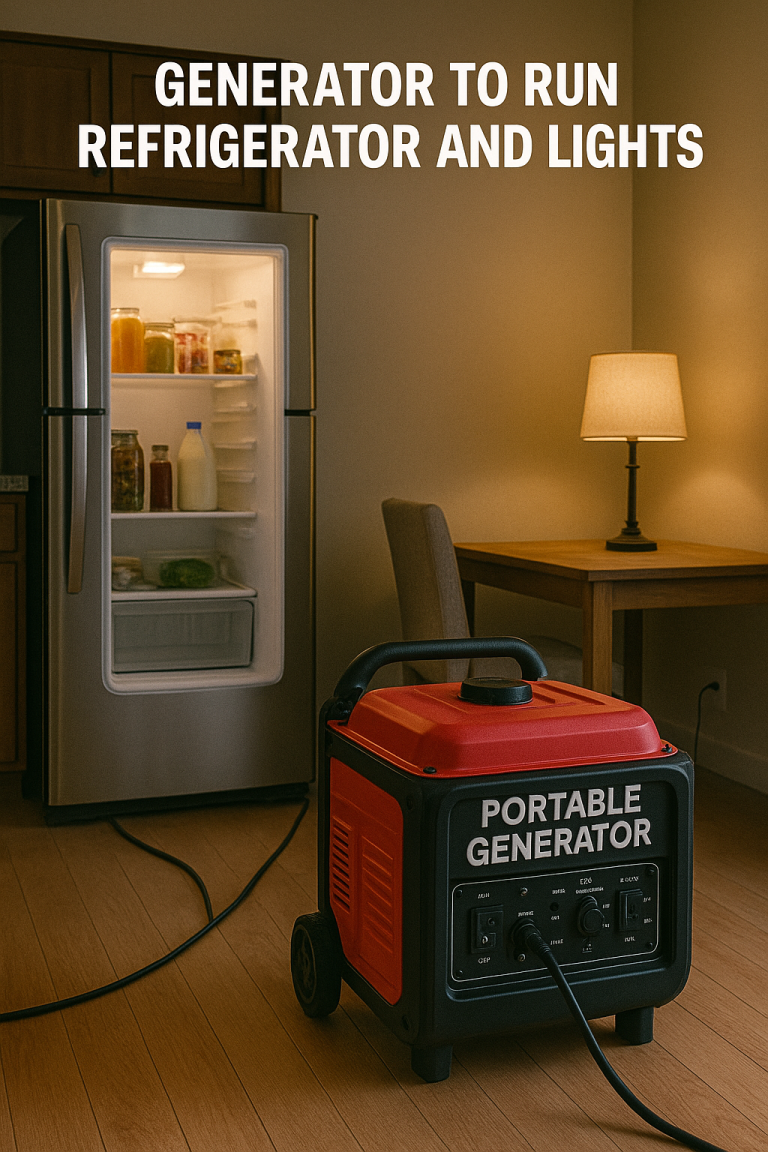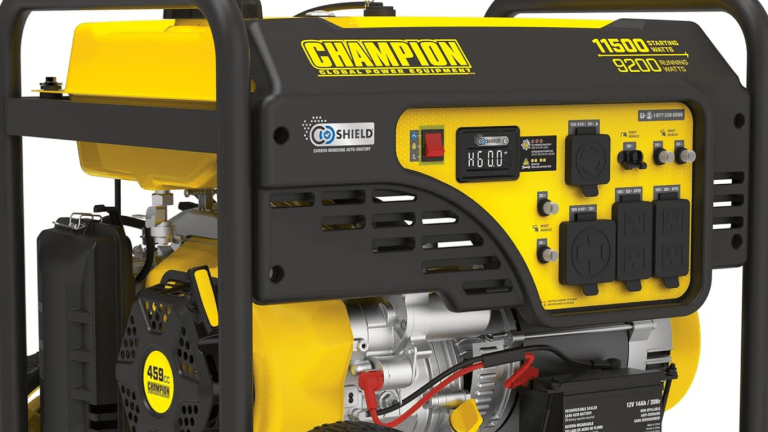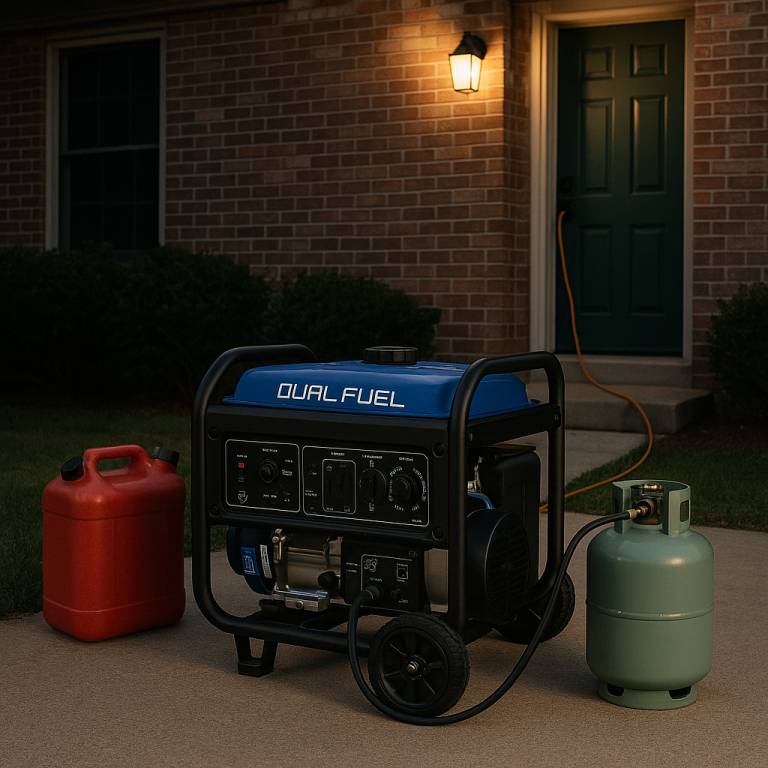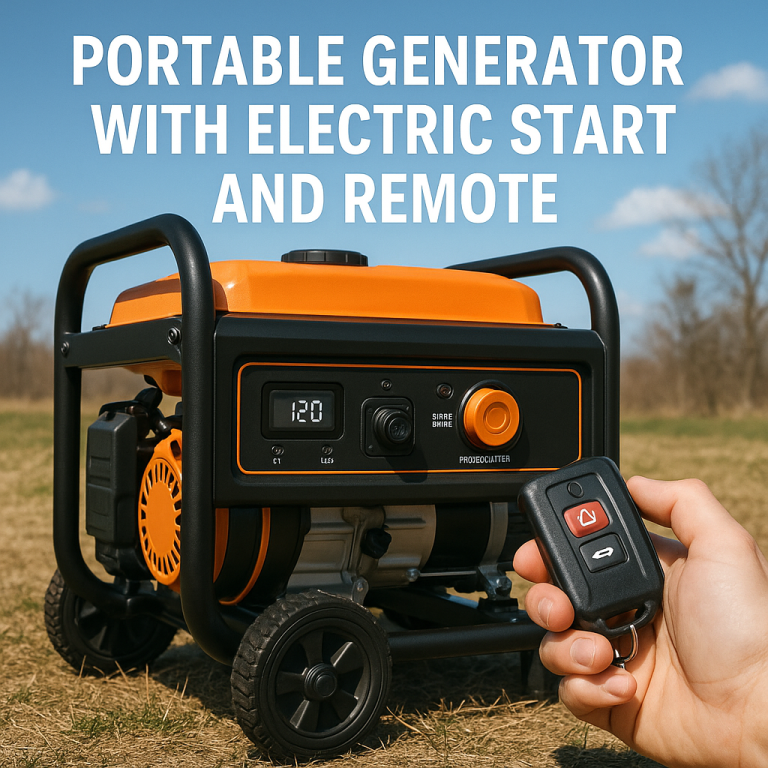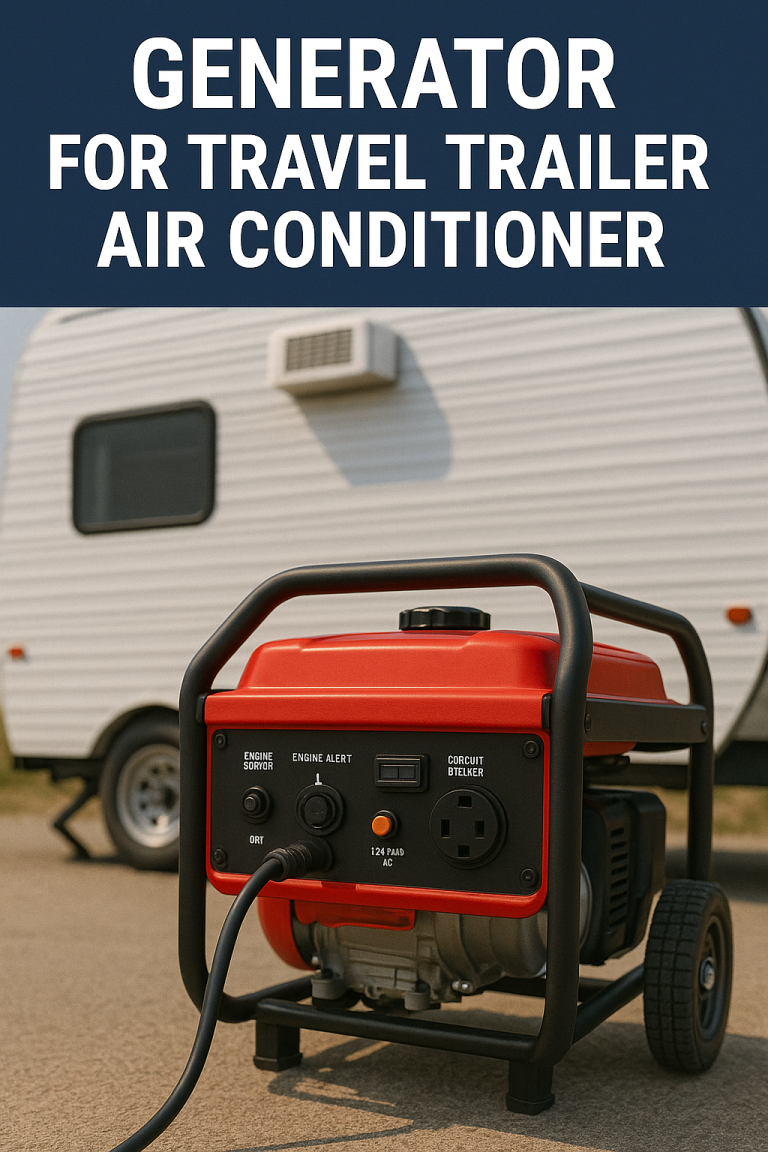Generator to Run RV Air Conditioner – Stay Cool Off the Grid
When you’re out on the open road or camping off the beaten path, few things are as essential as a working air conditioner in your RV — especially during the summer months. But if you’re not plugged into shore power, you’ll need the right generator to run your RV air conditioner.
Air conditioners are some of the most power-hungry appliances in your RV, and running them off a generator isn’t as simple as plugging in and hoping for the best. You need to make sure your generator has the right capacity, the right features, and the right fuel efficiency to keep you cool and comfortable no matter where you camp.
In this guide, we’ll walk you through exactly how to choose a generator that can power your RV’s air conditioner, what to look for in terms of wattage and fuel, and how to use it safely and efficiently.
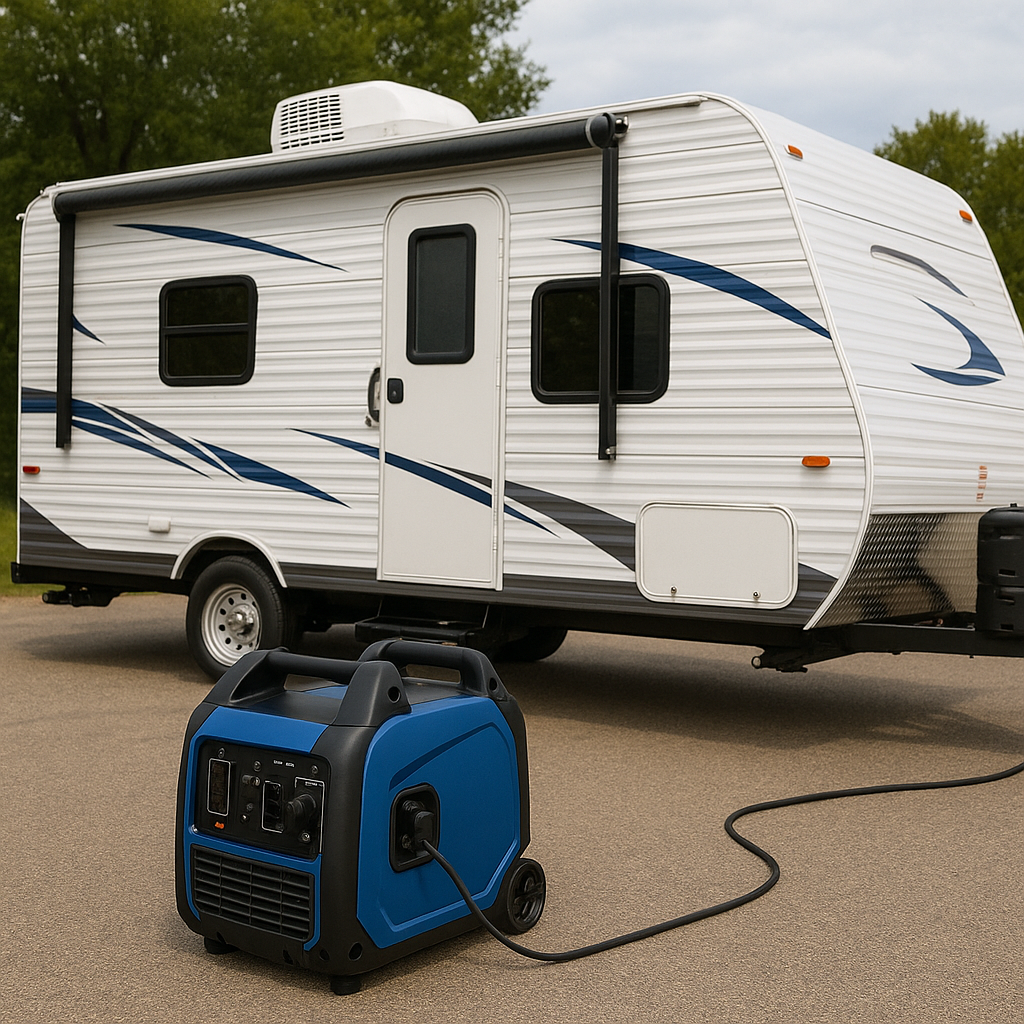
Can a Generator Run an RV Air Conditioner?
Yes — but it depends on the size of the generator and the power requirements of your specific AC unit. RV air conditioners typically range from 13,500 to 15,000 BTU, which translates to a starting wattage of 2800 to 3500 watts, depending on the model. After the compressor starts, the running wattage typically drops to around 1500 to 2000 watts.
Because of this startup surge, your generator must be able to handle both the peak load when the AC kicks on and the continuous load once it’s running.
Trying to run an RV air conditioner on a generator that’s too small can lead to overload shutdowns, inefficient performance, or even damage to your generator and appliances.
How Many Watts Do You Need?
To reliably run your RV air conditioner, you’ll need a generator with at least 3000 starting watts. If your AC is 15,000 BTU or has a higher surge load, aim for 3500 to 4000 starting watts or more.
If you also want to power lights, a microwave, or other appliances at the same time, you’ll need to factor in their wattage as well. In that case, a 4000 to 5500-watt generator gives you more breathing room.
What Kind of Generator Is Best for Running RV Air Conditioners?
There are three main types of generators to consider for this use case, each with its pros and cons.
Inverter Generators
Inverter generators are the top choice for RVers because they:
- Produce clean, stable power that’s safe for electronics
- Are fuel-efficient and adjust engine speed based on demand
- Run quieter than traditional generators — great for campgrounds
- Are often portable and compact
For running a 13,500 BTU AC unit, a 3000–3500 watt inverter generator usually gets the job done. If you’re running a 15,000 BTU AC, a 4000-watt model may be necessary — or you can use a soft start device (explained below) to lower the starting watt requirement.
Dual-Fuel Generators
These run on both gasoline and propane, giving you flexibility in fuel sources and longer run times. They’re ideal for extended boondocking trips or emergencies. Just make sure the wattage is high enough to handle your AC load.
Dual-fuel generators tend to be larger and heavier than pure inverter models, but many now come with inverter technology and quiet operation.
Conventional Gas Generators
These are often cheaper and come in higher wattage sizes, but they’re louder and less fuel-efficient. They may be overkill for just running an AC unit, unless you plan to power multiple large appliances or tools simultaneously.
What Is a Soft Start and Do You Need One?
A soft start device or easy start module is a small component installed on your RV air conditioner that reduces the initial power surge required to start the compressor.
With a soft start installed, the starting wattage of your AC can drop by 30–50%, meaning you could run a 15,000 BTU air conditioner on a 3000-watt inverter generator instead of needing 4000 watts or more.
It’s a great option if you already have a smaller generator and want to avoid upgrading. It also helps prevent tripped breakers and improves generator efficiency during hot weather when compressors have to work harder.
Key Features to Look For in an RV Generator for AC
When selecting a generator specifically for powering an RV air conditioner, here’s what to prioritize:
High Surge Capacity
Make sure the generator offers enough starting watts to handle the AC compressor. Always check your AC unit’s specs before purchasing.
30-Amp RV Outlet
Most RVs use a 30-amp connection. A generator with a dedicated TT-30R outlet lets you plug in directly without adapters. Some models even support 50-amp service for larger RVs.
Quiet Operation
Loud generators can get you kicked out of campgrounds or make your peaceful getaway anything but. Choose models rated under 60 decibels at 25% load for the quietest experience.
Long Runtime
Running an air conditioner means your generator will be working hard. Look for models that can operate 8–12 hours on a full tank, especially if you plan to run your AC overnight.
Fuel Efficiency
Inverter models and dual-fuel generators with eco mode or automatic throttle will use less fuel when demand is low. This can save you money and extend runtime.
Portability
You don’t want to throw out your back setting up power. Look for generators with wheels, folding handles, and a manageable weight — especially if you plan to stow it in your RV basement or rear compartment.
Generator Safety Tips for RV Use
Running a generator near an RV requires care. Here are essential safety tips to keep in mind:
- Always use the generator outdoors, at least 20 feet away from the RV or other structures
- Keep the exhaust pointed away from doors and windows
- Never run a generator in an enclosed space or under the RV
- Use carbon monoxide detectors inside your RV
- Keep a fire extinguisher nearby and store fuel safely
- Allow the generator to cool before refueling
Bonus Tip: Consider a Parallel Setup
Some RVers prefer using two smaller generators with parallel capability instead of one large unit. For example, two 2000-watt inverter generators can be linked together to deliver 4000 watts of total power — enough to run most RV air conditioners.
This setup offers:
- Easier transport and storage
- Redundancy (you can use one if the other fails)
- Lower noise levels during light power use
Just make sure the generators you choose are compatible with a parallel kit and that the combined wattage covers your startup needs.
Final Thoughts: Stay Cool Anywhere with the Right Generator
When you’re off-grid or dry camping, having the right generator to run your RV air conditioner is essential for comfort, safety, and relaxation. Whether you’re camping in the desert, the forest, or a tailgate lot in summer heat, a properly matched generator keeps your space cool — no hookups required.
To recap:
- Know your AC’s starting and running wattage
- Choose a generator with at least 3000–4000 starting watts
- Prioritize inverter models for quiet, efficient power
- Consider a soft start device to reduce power demands
- Look for RV-ready outlets, long runtimes, and portability
- Always follow safe operating practices
With the right setup, you’ll enjoy your RV life in comfort — no matter how high the temperature climbs or how far off-grid you go.

